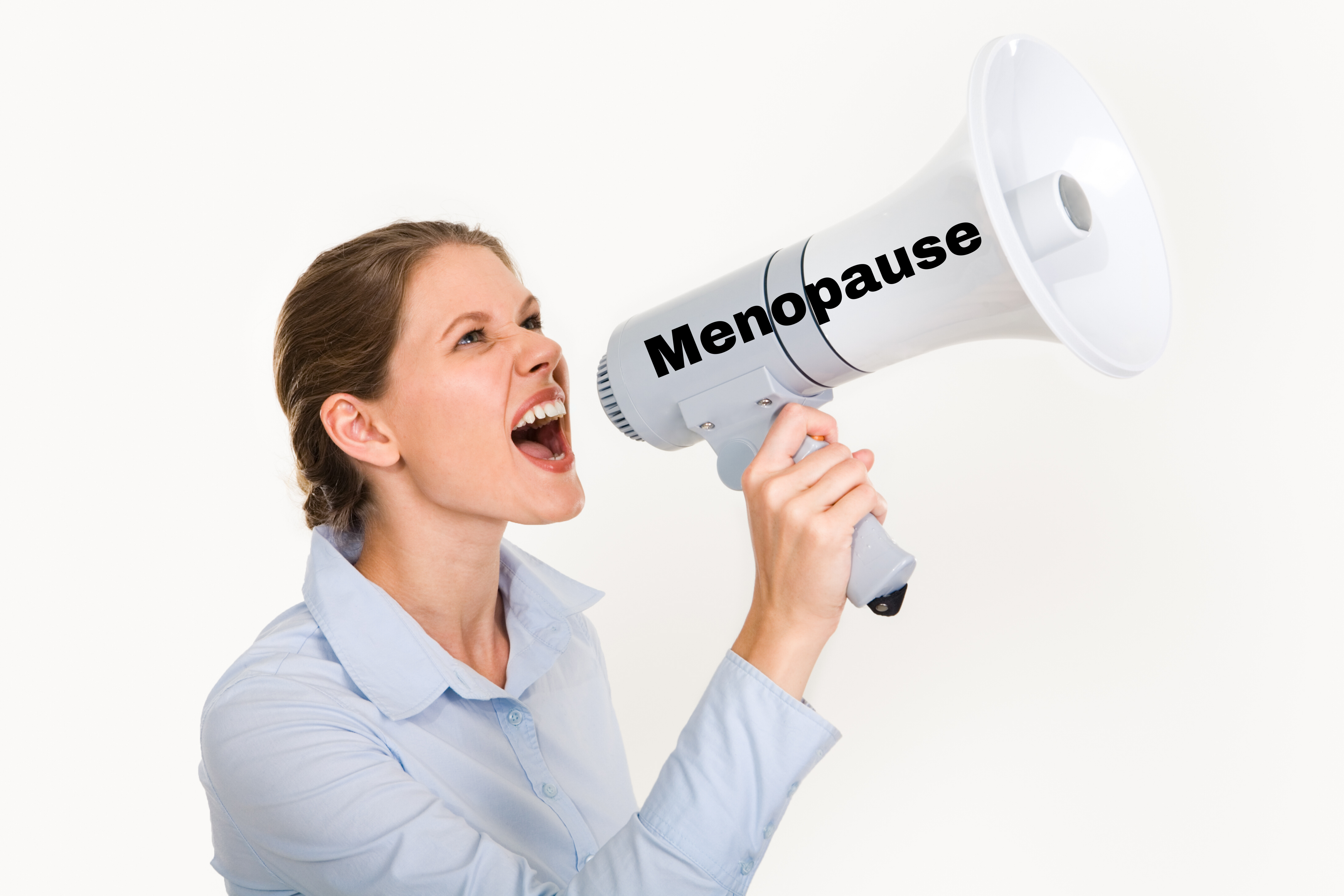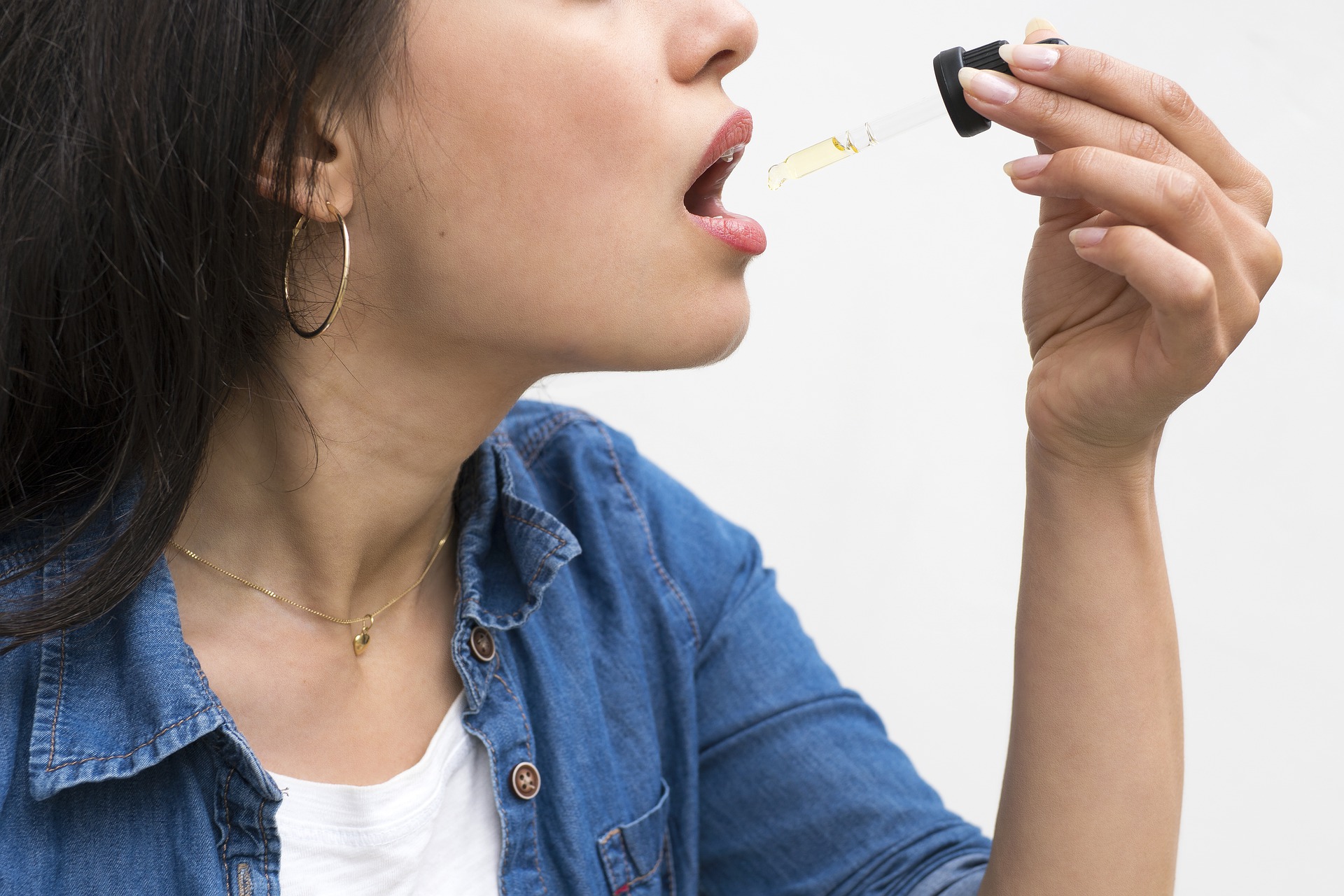
Let’s talk about one of the most dreaded but most common changes a woman will face in her life: Menopause. The mention of this word conjures up the thought of relentless hot flashes, unpredictable mood swings, brain fog, joint pain, unexplained weight gain, sleepless nights, and more. If you’re currently going through menopause, then you’re all too familiar with these symptoms. In fact, you may feel like your body is working against you. But what you may not realize is that these unwanted and often debilitating symptoms can be manageable and sometimes potentially avoidable through lifestyle changes, diet, and even through medicinal compounds like Cannabidiol (CBD).
If you’re new to CBD, don’t stress. CBD is not Tetrahydrocannabinol, most commonly known as THC. So it’s not going to get you “high”. In fact, more and more people have shifted their views on Cannabis and have begun to embrace CBD because of its therapeutic benefits and the fact that it’s non-intoxicating. Studies even show that when there’s a higher ratio of CBD, it can actually halt the psychoactive effects of THC. This allows users to benefit from the therapeutic properties of the cannabis plant without feeling any of its psychoactive effects.
In fact, scientific and medical research shows that CBD contains some incredible properties:
- Anti-inflammatory
- Anti-seizure
- Antipsychotic
- Anti-anxiety
- Antioxidant
- Analgesic
- Neuprotectant
- Etc.
It’s these very properties that have some medical professionals, and women around the world, wondering if CBD oil could help relieve or even address symptoms of menopause. In this article we’ll explore the science behind menopause and CBD. And we’ll help answer if CBD oil is the best option for your menopausal symptoms. But first, let’s talk a little more about the symptoms of menopause.
What is menopause?
By definition, menopause is when a woman permanently stops menstruating and is no longer able to get pregnant. The time leading up to this change is actually called perimenopause. In fact, menopause doesn’t set in until 12 months after your last period. This includes absolutely no signs of bleeding or even spotting. A lot of things happen in a woman's body during perimenopause and menopause. The biggest change is that the female body begins to produce less and less of the two main female hormones:
Estrogen –– a hormone that promotes female sexual characteristics and regulates menstrual cycle (period).
Progesterone –– a hormone created in a woman's ovaries that prepares the female body for pregnancy after ovulation.
Strangely enough, these two hormones really start to fluctuate before the female body enters into menopause, thus causing perimenopause symptoms:
- Hot flashes
- Poor sleep
- Depressed mood
- Increased anxiety
- Increased cramping
Once a woman’s period permanently stops, she then enters into menopause, thus creating additional symptoms like:
- Vaginal problems (dryness, infections, etc.)
- Memory problems
- Urinary problems
- Mood changes (mood swings, irritability, etc.)
- Low libido (low sex drive)
According to anecdotal reports, some women experience:
- Migraines or headaches
- Panicky feelings (racing heart)
- Aches and pains in their joints and muscles
- Thinning hair or even hair loss
- Unexplained weight gain
- Dizziness and vertigo
- Digestion problems (heartburn, low or increased appetite)
- Bowel problems (gas, constipation, diarrhea, etc.)
- Skin problems (drier or oilier skin)
The good news is that after menopause sets in, you then enter into postmenopause. This is where the symptoms associated with menopause lessen in frequency and severity. According to research, the symptoms of menopause, specifically hot flashes, could be felt anywhere from 4-14 years. This begs the question: Is there anything that can help relieve menopause symptoms?
5 ways to reduce menopause symptoms
As scary as menopause sounds, there are a few things you can do to help reduce the severity of these symptoms.
1. Practice good nutrition
Detox plans, veggie and fruit cleanses, and get-skinny-quick fad diets are usually the go-to for most people who are looking to improve their diet. But believe it or not, good nutrition can help alleviate some of the discomfort of menopausal symptoms. Good nutrition should be viewed as a lifestyle rather than a short term diet plan. It’s about choosing high quality veggies, fruits, good fats, smart carbohydrates, lean meats, and keeping your body hydrated.
2. Exercise regularly
This doesn’t mean you have to adopt a bodybuilder’s routine right off the bat. It just means to get out and move 2-4 times each week. Setting aside as little as 30 minutes, 2-4 times a week can really address menopausal symptoms like pain and inflammation. It can also strengthen muscles and bones, reduce stress, improve mood, and increase flexibility.
3. Get more quality sleep
In your younger years, pulling an all-nighter may not have affected how you feel the next day as much as it would when you're older in age. But you may be surprised at just how much a good night's sleep can improve your mood, enhance your ability to lose weight, and reduce aches and pains. However, one of the most common symptoms of menopause is sleep problems. Practicing yoga and reducing your exposure to bluelight (computer screen, smartphone) can be the first easy steps to achieving more sleep.
4. Reduce your stress
We live in a world that promotes “working best under stress”. But this is one of the worst phrases us humans have come up with. While some stress is good and even healthy, chronic stress is a silent killer and is known to increase perception of pain, inflammation, and a number of other physiological functions. The good news is, as we age, the less we tend to care about what others think. Still, managing stress can be complicated. Yoga, nutrition, exercise, sleep, relaxation, and increasing what brings you joy can reduce stress quite significantly.
5. Try CBD oil products
While it’s true that CBD is not a “cure all” elixir, studies do show that CBD can address certain symptoms that are associated with menopause such as anxiety, stress, depression, poor sleep, pain, inflammation, and in some cases weight gain and hot flashes. To fully understand how CBD addresses menopausal symptoms, we need to look at some scientific research.
Can CBD oil address symptoms of menopause?
Did you know that every human has an Endocannabinoid system (ECS)? This system is designed to signal and communicate balance throughout the body. In fact, our ECS is responsible for regulating and balancing the following:
- Digestion
- Appetite
- Mood
- Inflammation
- Perception of pain
- Memory
- Sleep
- Immunity
- Reproductive health
- Etc.
But according to some scientists, when there’s a deficiency within our endocannabinoid system, certain health problems will arise. While there are no studies regarding CBD and menopause per se, there are multiple studies that show that CBD can address certain symptoms that are also associated with menopause.
CBD oil for anxiety
Researchers found through neuroimaging studies that CBD reduced anxiety in SAD (Social Anxiety Disorder) patients. This study also showed that CBD improved their overall wellbeing.
CBD oil for depression and stress
According to a 2014 study, CBD produces antidepressant and anti-stress effects in the brain.
CBD oil for joint pain and inflammation
CBD oil has been shown to reduce inflammation and intestinal damage in Ulcerative Colitis patients. It’s also been shown that topical CBD cream can relieve arthritic pain and inflammation.
CBD oil for sleep
In a case study involving a young girl, CBD oil actually improved her mood and increased her ability to sleep throughout the night.
CBD oil for weight gain
A study found that CBD not only increases energy, but it also stimulates the genes and proteins that help breakdown fat cells. This study also found that CBD decreases the creation of new fat cells. This means CBD helps turn white fat into brown fat, which is known to burn calories.
CBD oil for mood swings and hot flashes
Unfortunately there are no studies that prove CBD can reduce hot flashes, but with the studies mentioned above, CBD can potentially improve and regulate emotions and mood. Additionally, because the ECS is responsible for regulating our body temperature, it’s thought that CBD could help regulate our body temperature, thus reducing hot flashes. Again, no studies prove this theory.
There is even anecdotal evidence that shows CBD may relieve certain symptoms of menopause. According to a survey on menopausal and postmenopausal women, co-author Mitch Earleywine, PhD, professor of psychology at the University at Albany, stated, “A sample of women told us that joint and muscle discomfort, irritability, sleep disturbance, and depression responded well, but vaginal dryness and bladder problems did not.”
It’s clear that CBD has the potential to address certain unwanted symptoms that may be associated with menopause. But how much CBD should you take?
CBD oil dosage for menopause

If you're considering CBD but you’re new to this therapeutic compound, it’s best to determine which form of consumption will work best for you. For example: CBD creams and other topicals are great for addressing achy joints and muscles. However, it can take over an hour before it finally enters into your system. Once it does, it really works in relieving chronic pain and inflammation. CBD topicals are typically safe and easy to dose. Companies usually recommend applying CBD cream 1-3 times a day.
CBD oil is perhaps the most popular form of CBD consumption. What makes CBD oil so appealing is that it’s administered under the tongue. This allows the CBD oil to enter the bloodstream much faster, within 30-60 minutes. Other CBD products, like CBD gummies and capsules, usually take 45 minutes or more before the effects are felt. This is because gummies and capsules must first pass through the digestive system and liver.
The good thing about CBD capsules and CBD gummies is that they are already pre-dosed. So the amount of CBD you should take is already determined for you. CBD oil isn’t quite as set in stone, but most CBD oil tinctures will come with an easy-to-measure dropper. Determining how much CBD oil you should take is fairly easy once you get the hang of it.
If you are new to CBD infused products, it's best to start at a low dosage and increase slowly until you reach the desired effects. It’s also best to consult with your doctor before consuming CBD, especially if you are taking any prescription medications. That said, where is the best place to find high quality CBD products?
What’s the best CBD for menopause?
When it comes to finding the best CBD oil products for menopause, it’s imperative to only purchase from reputable companies. This is because not all CBD products on the market today are formulated the same. Some CBD companies will cut corners by not accurately labeling their products. Some products may contain virtually no CBD, while other products may contain higher ratios of THC. It all boils down to what the test results say.
Reputable CBD companies will thoroughly test their products and always list their ingredients on their product. Just be sure to research the company before you purchase. The more you know what’s in a product, the better you can improve your health.
Should you take CBD oil for your menopause?

If you’re a woman, it’s normal to be a bit nervous about menopause. After all, it’s inevitable that hormone levels will fluctuate as you get older. However, this doesn’t mean you have to suffer. Improving your nutrition, practicing mindfulness, exercising more, and supplementing with CBD may help address these annoying and often debilitating symptoms. If you’re still on the fence about CBD oil, consulting with your doctor or even an OBGYN, may be the best option in determining if CBD is a good fit for you—especially if you plan on taking CBD along with prescription medications. Nevertheless, it’s important to note that CBD isn’t something a doctor can legally prescribe (with the exception of the drug Epidiolex, which is typically reserved for patients with epilepsy). If you find yourself torn about taking CBD, the best option is to try it for yourself; just be sure to take it apart from any prescription drugs.
While it may seem like you’re going insane and your body is working against you, perimenopause, menopause, and postmenopause are all a natural part of life. Addressing menopausal symptoms can be a pain and will uniquely affect each female in its own way. Just know that you’re not alone and some lifestyle changes, in addition to CBD, may help bring relief to these aggravating symptoms.



